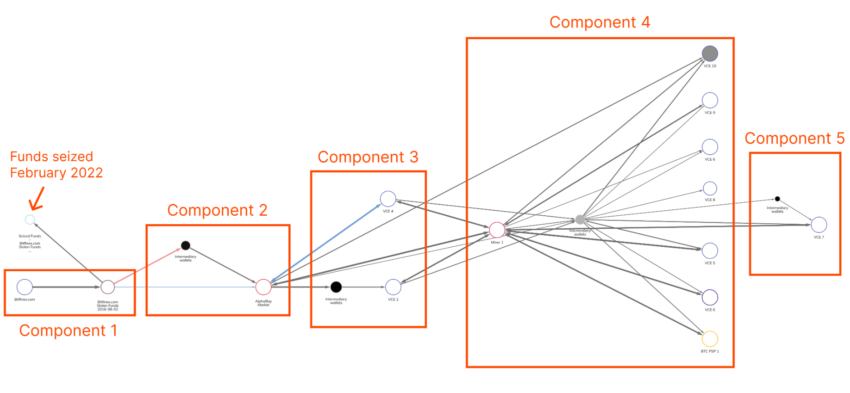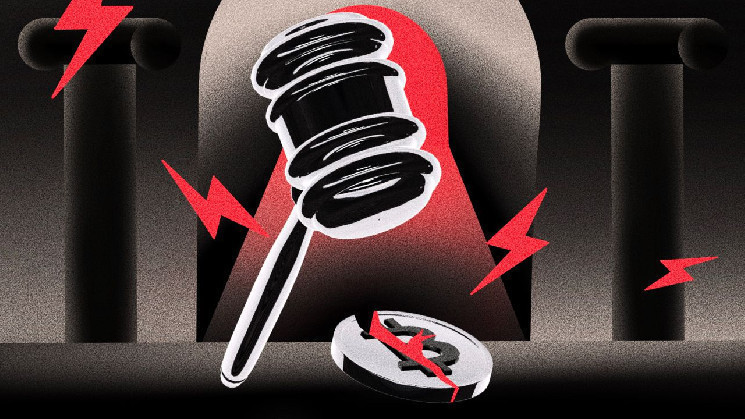Bitfinex hacker Ilya Lichtenstein testified as a government witness in a US case against crypto mixer Bitcoin Fog. The move comes as US and European Union regulators continue their crackdown on crypto-related money laundering.
Ilya Lichtenstein said that he used Bitcoin Fog as one of the services to hide the trail of funds stolen from Bitfinex.
Bitfinex Exchange Thief Doxxes Bitcoin Fog
The money launderer said the mixer’s quality was low and was only part of his plan to hide the funds. Bitcoin mixers obscure funds by pooling deposits from multiple addresses and dispensing funds from an address different from the deposit address. Lichtenstein said that Bitcoin Fog was a ‘darknet favorite’ but that he found others that served his purposes better.
Lichtenstein pleaded guilty to money laundering in 2023. He and his wife Heather Morgan, nicknamed ‘Razzlekhan’ for a time, pulled off one of the biggest crypto scams in history.
The pair conspired to launder 119,574 BTC (approximately $4.5 billion) from Bitfinex after the exchange was hacked in 2016. The pair directed the funds to a crypto wallet owned by Lichtenstein.
Read more: Top 5 Flaws in Crypto Security and How To Avoid Them

They then moved the funds between different chains and used coins with anonymity built in. It appears now that crypto mixers were also used to obfuscate the origin of funds further.
In 2022, the US Treasury Department blacklisted three addresses linked to the Ethereum mixer TornadoCash. Ethereum co-founder Vitalik Buterin later said that good faith investors can use crypto mixers, too. The action prompted an outcry from crypto advocacy groups like Coin Center, who argued against unlawful censorship.
“Given the specific powers granted to the Treasury Department by Congress, these are not the kinds of activities that can be censored or blocked. The Tornado Cash sanction was, therefore, made in excess of statutory authority and must be set aside,” CoinCenter said.
Regulators Ramp Up Money Laundering Efforts
Regulators in Europe and the US have been ramping up efforts to combat money laundering. Last week, the US Treasury Department added two Russian individuals with ties to the ransomware group LockBit to its list of sanctioned entities. Nine cryptocurrency addresses belonging to the pair were also added to the list.
The European Union (EU) announced last week that it will establish an anti-money laundering authority in Frankfurt. The new 400-staff institution will oversee certain financial service providers, including crypto exchange businesses with international footprints.
This initiative came after French authorities investigated Binance for money laundering and a guilty plea from its former CEO, Changpeng Zhao. Moreover, the new rules align with the goal of the region’s new Markets-in-Crypto-Assets (MiCA) regulations, which include reporting requirements on crypto transactions of any size. MiCA will become effective for exchanges in the EU later this year.
Read more: Crypto Regulation: What Are the Benefits and Drawbacks?
Last month, officials in Turkey said that they are finalizing crypto regulations that will include measures to fight money laundering. This came after the Financial Action Task Force placed the region on its so-called gray list, suggesting the country needs to tighten measures to prevent criminal funds from passing through. BeInCrypto contacted the US Justice Department for more information on the Bitcoin Fog case but had yet to hear back at press time.
Trusted
Disclaimer
All the information contained on our website is published in good faith and for general information purposes only. Any action the reader takes upon the information found on our website is strictly at their own risk.
 beincrypto.com
beincrypto.com
